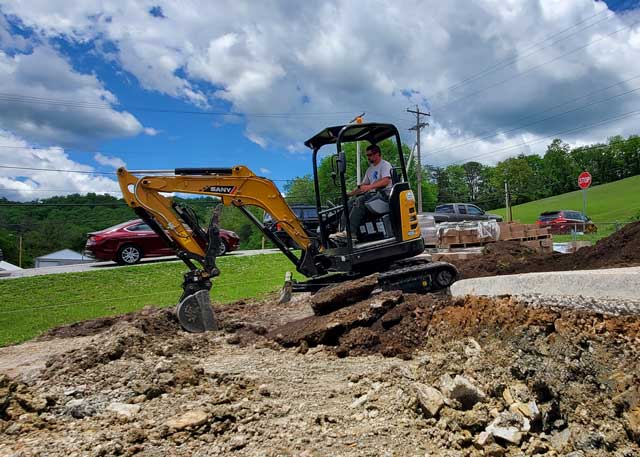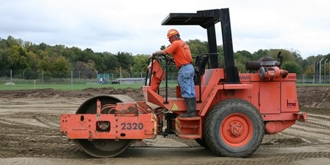Industrial Lancaster Trenching - Trenching Providers for Services in Lancaster
Industrial Lancaster Trenching - Trenching Providers for Services in Lancaster
Blog Article
Comprehensive Excavation Techniques: Grasping the Basics for Success
The cautious planning, accurate execution, and thorough interest to detail called for in excavation tasks require a comprehensive strategy that incorporates different fundamental facets. The real mastery exists not just in understanding these basics yet in seamlessly incorporating them to browse the intricacies of excavation projects with skill.
Understanding Excavation Job Planning

The initial stage of any kind of excavation job is the planning phase, where crucial decisions are made that can significantly affect the end result of the project. Comprehending the job scope, timeline, and budget plan restraints is crucial for creating an extensive excavation plan that makes certain the project's success.
One trick facet of excavation task preparation is the growth of a thorough timeline that details the series of activities, milestones, and target dates. This timeline works as a roadmap for the task group, allowing them to track progression and make essential adjustments to make sure the project stays on timetable. Furthermore, a distinct spending plan that represents all costs, including devices leasing, labor costs, and products, is crucial for preventing cost overruns and hold-ups. By meticulously considering all these variables during the drawing board, excavation projects can be implemented efficiently and efficiently, leading to effective results.
Soil Analysis and Site Evaluation
Conducting comprehensive dirt analysis and website examination is a crucial action in the prep work phase of any kind of excavation task. Soil evaluation entails identifying the structure, framework, and homes of the soil at the excavation website. This information is essential for recognizing the soil's bearing capability, moisture web content, and possibility for disintegration, which are vital consider identifying the excavation techniques and equipment required for the job.
Website evaluation surpasses dirt evaluation and encompasses a more comprehensive evaluation of the total website problems. This analysis consists of determining any type of possible risks, such as below ground utilities, environmental worries, or unstable surface, that might impact the excavation process. By thoroughly evaluating the site, project supervisors can create effective excavation methods that prioritize safety and security, performance, and environmental defense.
Making use of sophisticated technologies like ground-penetrating radar, soil tasting, and drone surveys can enhance the precision and efficiency of soil evaluation and site analysis. Spending time and resources in these initial steps can ultimately save time and prevent costly hold-ups or difficulties during the excavation process.
Devices Choice and Application
Reliable excavation jobs depend greatly on tactical devices option and application to guarantee ideal performance and productivity. Selecting the best devices for the job is important in taking full advantage of effectiveness and reducing downtime. Aspects such as the type of dirt, depth of excavation, and job extent play a considerable duty in identifying the most appropriate equipment for the task available.

In addition to choosing the suitable equipment, proper utilization is vital to project success. Operators should be trained to handle the equipment securely and effectively - septic ohio. Routine maintenance checks and timely fixings assist prevent malfunctions and ensure regular efficiency throughout the project
Precaution and Laws Conformity
In the world of excavation projects, focusing on security steps and conformity with laws is critical to guaranteeing a legitimately sound and safe operational setting. Safety and security measures incorporate a series of Recommended Reading methods, consisting of carrying out thorough website evaluations, executing correct signs and barriers, and supplying appropriate safety and security training for all workers associated with the excavation procedure. Adherence to laws, such as OSHA requirements in the USA, makes certain that the excavation task meets the necessary criteria to shield employees, bystanders, and the surrounding environment.

Monitoring Progress and Adjusting Methods
How can forecast supervisors successfully track the improvement of excavation projects and adjust their methods appropriately to enhance outcomes? Surveillance progression is vital for making certain that excavation tasks stay on track and satisfy due dates.

Final Thought
Finally, mastering the This Site basics of extensive excavation techniques is essential for the success of any kind of task. By comprehending project preparation, assessing dirt and site conditions, selecting appropriate equipment, following safety regulations, and checking progress, task managers can make sure a smooth and effective excavation process. Executing these approaches will certainly result in effective end results and lessen potential risks or obstacles during the excavation task.
The first stage of any kind of excavation project is the preparation phase, where essential decisions are made that can significantly influence the result of the task. Recognizing the task scope, timeline, and budget restraints is important for developing a comprehensive excavation strategy that makes certain the task's success.
Exactly how can project supervisors properly track the development of excavation jobs and adjust their techniques accordingly to enhance results? By carefully checking progression and being eager to adjust strategies, task supervisors can boost the overall success of excavation tasks.
By understanding task planning, examining dirt and website problems, picking suitable devices, abiding with security guidelines, and keeping an eye on progress, project supervisors can make certain a reliable and smooth excavation process.
Report this page